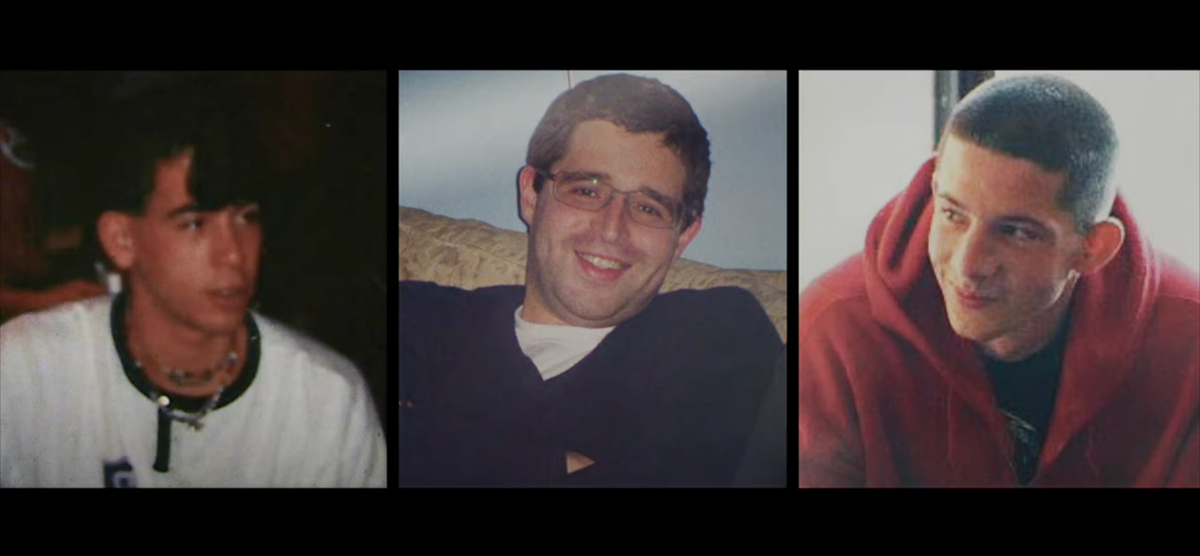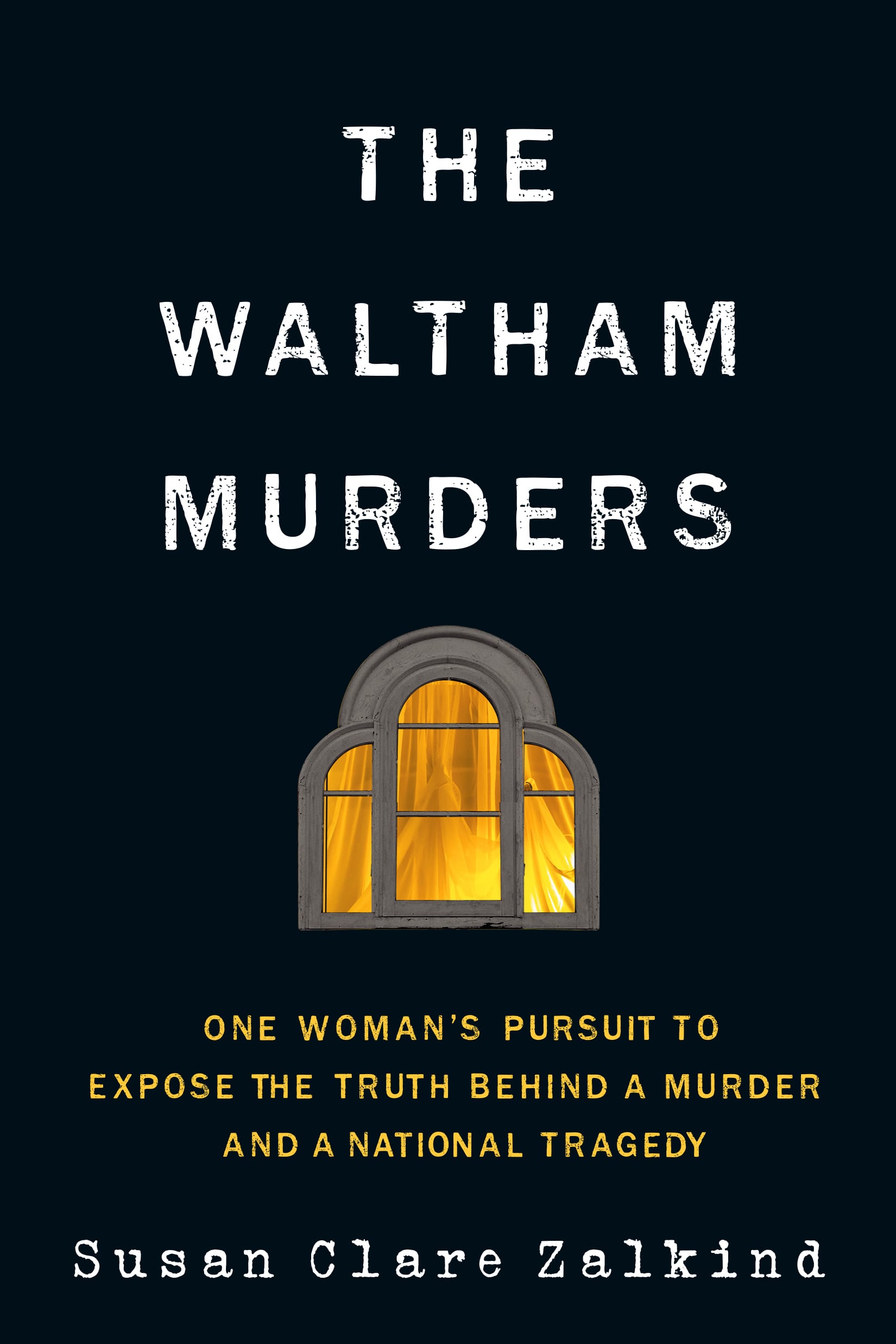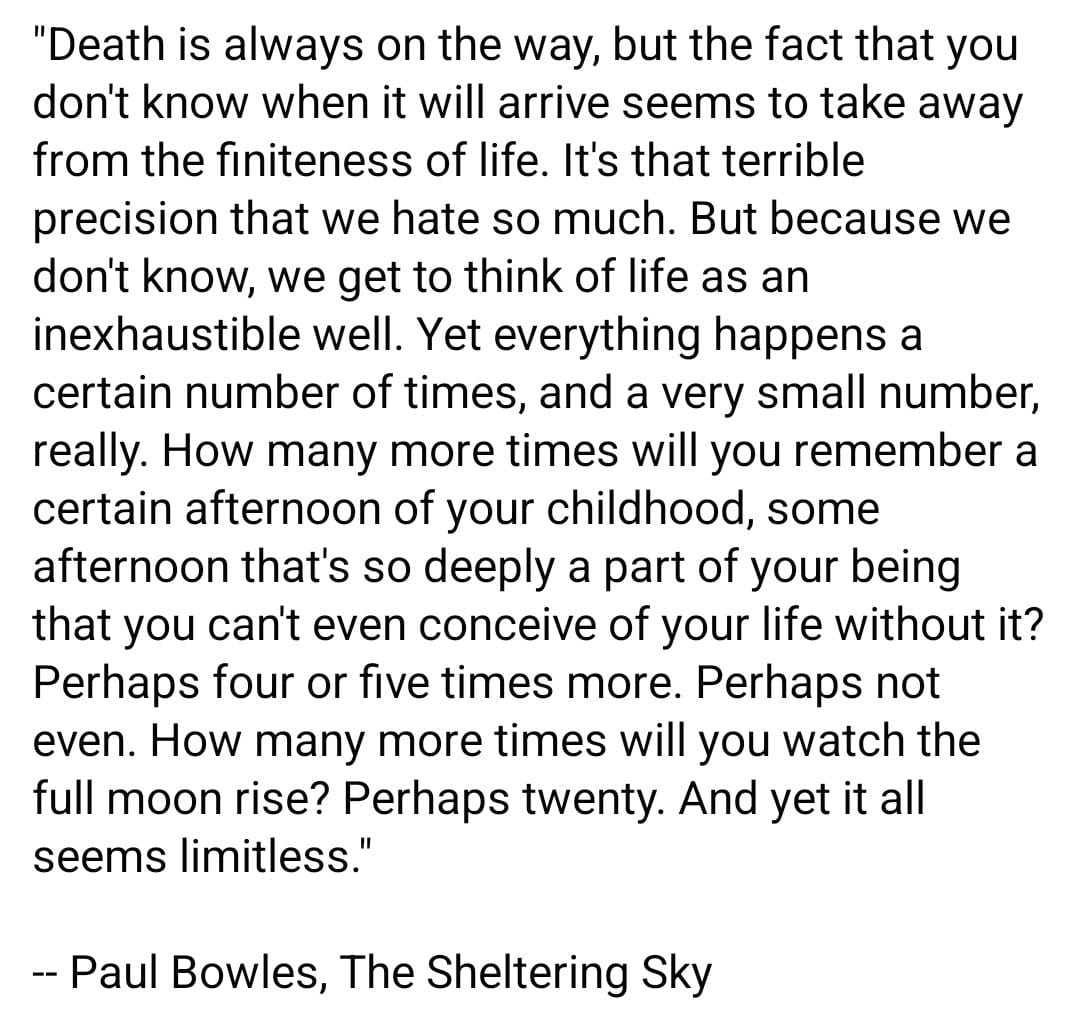Wrong place, wrong time, doing the wrong thing
The Waltham Murders

In September of 2011 three men were found brutally murdered in an apartment in Waltham, MA.
You may remember I wrote about this case a couple years ago here:

In that piece I spoke with Susan Zalkind, a friend of one of the victims named Erik Weissman, and an old friend of mine, about her Hulu series The Murders Before the Marathon. The central question of the series was:
“If police investigated this case thoroughly, would they have prevented the Boston Marathon bombing?”
Since then Zalkind has continued her dogged pursuit of the case – which remains open to this day – trying to piece together what happened to her friend, how the murder related to the bombing, and why police on all levels seemed to do such a half-ass job investigating. It's a journey that's taken her down a series of both frustrating and illuminating roads, and one she's meticulously documented in her gripping new book The Waltham Murders: One Woman’s Pursuit to Expose the Truth Behind a Murder and a National Tragedy.
Today we have an excerpt from the book, including some new reporting on a woman close to the victims.
First an introduction from Zalkind. (More from me after that below). You can find her website here and her newsletter here. The launch party for the book is on Tuesday March 5 at Trident Books in Boston.
If you want to read a bunch of stuff I wrote about the bombing over the years, including what it was like hiding from the gunfight during the manhunt in Watertown where I lived at the time you can find it all here:
On Monday, September 12, 2011, a woman walked out of a second floor apartment on a dead end street in Waltham, Massachusetts with blood on her feet.
Hibatalla K. Elilib had lived in the apartment with her boyfriend, Brendan Mess, one of the three men murdered inside. A few days earlier, she slashed Brendan’s tires, packed up her bags, and booked a one way ticket to Miami. When Hiba returned she asked the landlord to open the door.
Here is what you need to know: The murder of three marijuana dealers is crucial to understanding the events that led up to the Boston Marathon bombing in 2013.
Why does this matter? Well, it’s the truth.
In the decade since the bombing, an event that corresponded with the widespread use of social media, spread of misinformation, disinformation, and the political capitalization of fear, the world has become increasingly untethered from fact. Hell World readers, you know what I mean.
I can’t do anything about the chaos of our current existence. But on this matter, the question of what happened in Waltham, I made a commitment to figure out what I could, to create a record of account, where no such record existed, and to seek the truth, no matter how unwieldy or uncomfortable my findings.
Most of the new and fairly explosive reporting in The Waltham Murders: One Woman’s Pursuit to Expose the Truth Behind a Murder and a National Tragedy, is about law enforcement and local politicians. It’s also a murder memoir, a story about secret criminal worlds, conspiracy theories, friendship, and the place where I am from.
And there is new, substantial, reporting about Hiba, the woman who found the bodies, and her other dead lovers. I note four such deaths in this book. Although largely off the general public’s radar, for those close to the case, questions about Hiba, her trip to Miami, and her subsequent return, have been paramount from day one.




Jahmare
Hiba and her string of dead lovers sounded like something out of a campy noir. Yes, she and Brendan allegedly had a tumultuous relationship fueled by drugs and violence, but one could argue that Brendan also allegedly played a role in that dynamic. People made judgments and assumptions about Hiba’s behavior after the fact, but how is one supposed to react after opening the door of one’s home and finding three dead bodies inside? Who were they to judge her reactions? Yes, three of her past lovers died in a short period of time. Yes, after Hiba threw a knife in an argument with Rafi, he stopped visiting Brendan’s apartment when she was home. And, yes, Erik was trying to avoid her too. It seems unlikely that the triple murder would have occurred as it did, that all three men would have been at Brendan’s, or that Rafi’s apartment would have been robbed, if she had not left that weekend. But coincidences happen. Her trip to Miami was crucial to how the events unfurled. But that does not mean she intended any of this to occur as it did.
For many years, I thought perhaps, Hiba’s dead lovers were a stroke of bad luck and nothing more, like she insisted to me over Skype. But additional reporting raised new questions.
Ten days before the murders, on September 1, 2011, at approximately 8:30 p.m., Jahmare H. Smith was found in the driver’s seat of a blue Honda Prelude with a bullet in his head in a church parking lot in Henrico County, Virginia. He was thirty-three years old. Hiba told me that she and Jahmare had not spoken in a while. “I’d seen him at a gas station maybe a year or so before that. That was the last time. We said hello, I gave him a hug, and we didn’t talk. I didn’t, like, have his phone number,” she said.
Jahmare’s murder appears fairly straightforward. A man named Jeffrey Runion was arrested on September 12, 2011. Runion pleaded guilty to second-degree homicide charges and was sentenced to fourteen years. In his plea hearing the state reviewed the evidence they would have presented had the case gone to trial. The story they put forth was that Jahmare tried to rob Runion.
Apparently, at around 7:15 p.m. on September 1, 2011, Jahmare was at a barbershop, when he got a phone call and ran out with product in his hair. Over the phone, Jahmare and an associate made plans to buy marijuana from Runion at a nearby apartment complex. Jahmare pulled out a gun and told Runion to give him the weed. Runion also had a weapon, hidden in his shoe, and he chased after Jahmare and shot him dead. A couple of hours later, Runion told a childhood friend he killed a man, and the friend told police.
My executive producer, Matt Cook and I went to visit Assistant Commonwealth Attorney Michael Feinmel at his office in Henrico County to take a closer look at the evidence. Investigators matched the shells at the murder scene to a Glock Runion owned. Runion had the box to the murder weapon in his house. Feinmel said that the Glock company test-fires their weapons and includes the shell casings in the packaging.
Feinmel had not heard of Hiba. Investigators never approached him about the Waltham murders. “She would have to be pretty Machiavellian to set this thing up,” he told me. After all, it was Jahmare, not Runion, who allegedly instigated the violent encounter.
I also called Runion’s defense attorney, Andrew Wood. Runion, Wood told me, was “an otherwise decent guy.” But he said, “He did it.”
Unfortunately, I could not get a hold of Jahmare Smith’s family. But I wrote to Runion at the Buckingham Correction Center and he called me a short time later.
“You killed Jahmare Smith. That’s correct, right?” I asked.
“Yes, yes,” he told me. He didn’t miss a beat.
“Can you tell me what happened?” I asked.
He told me more or less the same story prosecutors put forth at the hearing. He said he followed Jahmare in his car to get his phone back, saw Jahmare pull out his gun, and was first to pull the trigger. “It was something stupid,” he said. He told me he had never met Jahmare—the deal was set up by Jahmare’s associate. I asked him if he knew Hiba. He told me he did not, and sounded confused. I said that she had been a girlfriend of Jahmare’s. He tried to be helpful. He mentioned the name of a woman he believed to be Jahmare’s girlfriend who he saw at court. It wasn’t Hiba. Then he said he had no idea what I was talking about. His story was all about him and Jahmare being in the “wrong place, wrong time, doing the wrong thing.” It wasn’t complicated.
Runion had done nine years at Buckingham, and he had five more to go. We talked a little after that, about how he had gotten his GED and was working on getting his plumbing license. And that was that.
My questions concerning the death of Hiba’s late husband, Jay Edosomwan Jr., proved more difficult to resolve.
The Waltham Murders: One Woman’s Pursuit to Expose the Truth Behind a Murder and a National Tragedy is available now.

The Guardian reported on the rise of writer-owned collectives like Defector, 404 Media, Hell Gate, and Flaming Hydra, the new thing I'm a part of, as the journalism industry continues to be killed.

“It’s a ray of sunshine on a cloudy day,” my fellow Hydra Harry Siegel said. “In the long run we’re all dead, but in the short term we can go out swinging and do some really good work.”
Supporting independent media and the writers you read is a good thing to do. It might not purify your dirty soul but it certainly can't hurt!
My most recent piece is about 20 perfect songs and goes in part like so:

During a police raid of the homes of Stop Cop City activists one woman said the cops prevented her from putting her clothes on when they burst in and handcuffed her and left her like that for hours. They took a photo of her like that she said, and lawmakers in Alabama were pushing forward bills to erode child labor laws and The Lemonheads were singing, “She's in the phone booth now, I'm looking in. There comes a smile on her face,” and Frightened Rabbit were singing, “I don't need water I just want to wave goodbye, goodbye, to an otherwise disappointing life,” and my wife is napping on the couch on the last Sunday evening of her teacher’s vacation and she looks so beautiful when she’s sleeping and Doves are singing, “My God, it takes an ocean of trust in the kingdom of rust,” and we’re going to probably have the leftover Indian from last night and maybe turn off a show on Hulu halfway through going like why aren’t TV shows better now and Rainer Maria’s Artificial Light and The Promise Ring’s A Picture Postcard and Camera Obscura’s French Navy and Built to Spill’s Carry the Zero and Idlewild’s Love Steals Us From Loneliness and Eisley’s Telescope Eyes and Dinosaur Jr’s Over Your Shoulder and Family Band’s Moonbeams and R.E.M.’s Leave and Brutus’ War and war and war and war and war and war and war and war and Pianos Become the Teeth singing “I thought about the rust, the quote on the ledge about living on that great consciousness of life. Oh, what we frame and hang to get by. Whatever keeps your heart light. Whatever keeps you is all right by me.”
This piece by Pankaj Mishra in the London Review of Books is indeed as good as everyone has been saying.
Despite its increasing reservations about Israel, a political and media class in the West has ceaselessly euphemised the stark facts of military occupation and unchecked annexation by ethnonational demagogues: Israel, the chorus goes, has the right, as the Middle East’s only democracy, to defend itself, especially from genocidal brutes. As a result, the victims of Israeli barbarity in Gaza today cannot even secure straightforward recognition of their ordeal from Western elites, let alone relief. In recent months, billions of people around the world have witnessed an extraordinary onslaught whose victims, as Blinne Ní Ghrálaigh, an Irish lawyer who is South Africa’s representative at the International Court of Justice in The Hague, put it, ‘are broadcasting their own destruction in real time in the desperate, so far vain, hope that the world might do something’.
But the world, or more specifically the West, doesn’t do anything. Worse, the liquidation of Gaza, though outlined and broadcast by its perpetrators, is daily obfuscated, if not denied, by the instruments of the West’s military and cultural hegemony: from the US president claiming that Palestinians are liars and European politicians intoning that Israel has a right to defend itself to the prestigious news outlets deploying the passive voice while relating the massacres carried out in Gaza. We find ourselves in an unprecedented situation. Never before have so many witnessed an industrial-scale slaughter in real time. Yet the prevailing callousness, timidity and censorship disallows, even mocks, our shock and grief. Many of us who have seen some of the images and videos coming out of Gaza – those visions from hell of corpses twisted together and buried in mass graves, the smaller corpses held by grieving parents, or laid on the ground in neat rows – have been quietly going mad over the last few months. Every day is poisoned by the awareness that while we go about our lives hundreds of ordinary people like ourselves are being murdered, or being forced to witness the murder of their children.
Please "enjoy" this nice passage from Paul Bowles I just saw (h/t).

That all may be true Paul Bowles but it's not going to stop me from remembering Cursive's The Ugly Organ, which came out twenty one years ago today.
Cut it out
your self-inflicted pain
Is getting too routine
The crowds are catching on
To the self inflicted song
Well, here we go again
The art of acting weak
Fall in love to fail
To boost your CD sales
You've got to repeat it
You gotta sink to swim
If at first you don't succeed
You gotta recreate your misery
Cause we all know art is hard
Young artists have got to starve
Try, and fail, and try again


